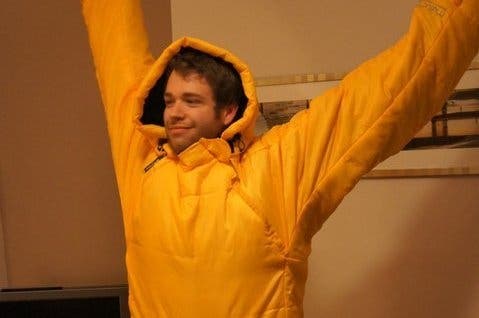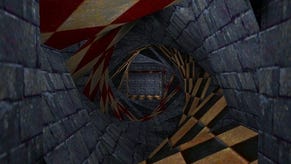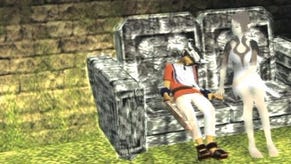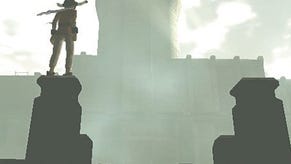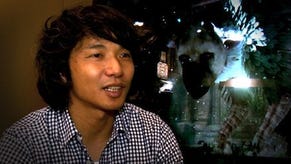Eurogamer vs Tom Bramwell
"I probably don't know what I'm talking about."
Today is Tom Bramwell's last day at Eurogamer. The former editor-in-chief leaves after nearly 15 years at the company. We're all sad to see him go, but wish him well for the future, whatever it may hold.
During his time at Eurogamer, Tom reviewed countless video games, interviewed hundreds of developers and publishers, and even penned the odd column. He led the team as we travelled across the world, reporting on the likes of GDC, E3, Gamescom and Tokyo Game Show. He was the driving force behind Eurogamer's editorial direction, raising standards while setting the agenda. Oh, and he hired me, which, obviously, was his smartest move.
So, after so many years spent grilling the video game industry, we thought it would be fun to turn the tables on Tom and see how he'd like the hot seat. Why is he leaving Eurogamer? Has he ever been offered cash for a review score? And, of course, do you eat Doritos? Let's not pull any punches - after all, as we'd often say to each other as we'd head off to report on some event, "happy hunting."
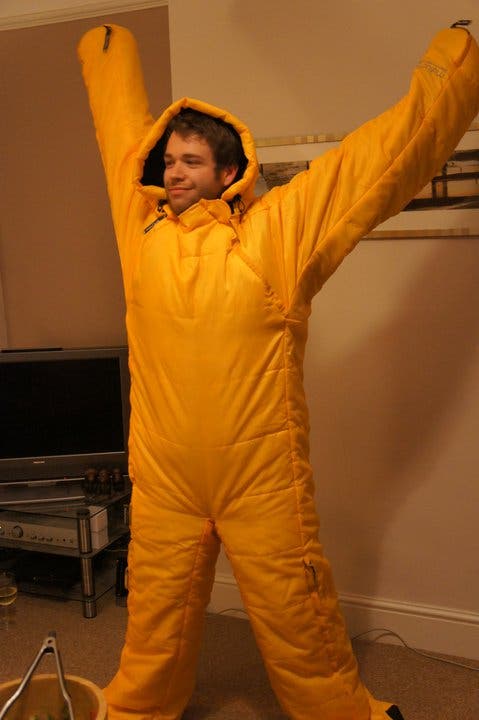
Why are you leaving Eurogamer?
Tom Bramwell: The short answer is I have been doing this for an incredibly long time and I fancied a change. That's also the long answer, thinking about it. I would have been here for 15 years if I'd stayed until February.
You didn't fancy sticking around until then just for symmetry?
Tom Bramwell: I couldn't take it any more! I had to get out of here! But seriously, the start of the year is quite boring compared to the end of the year. It seemed like a nice way to end was just going out at the end of Q4.
I feel a bit like Roy Batty in Blade Runner when he's holding that dove and he's dying and he's like, "I watched C-beams glitter in the dark near the Tannhauser gate." You wouldn't believe the things I've seen, Wes. Having been here an incredibly long time and experienced so many awesome things and a lot of things that were less awesome, I just feel like I've had a really good run, and I'm getting a little tired of the repetition. Let's face it, it is quite a repetitive job and industry. And that's not to say I find games any less exciting than I used to. But I just fancied a change. Also, the longer I stayed, the bigger a deal it would be whenever I left, and I started to feel the burden of that. I enjoy writing and being read, but I don't enjoy being that much of a focal point, so this deflates the balloon.
Plus, I'm at a point in my life where I can afford the time and have the resources - for a little while anyway - to go away and try and see if I can find something else to interest me. I might end up sticking with something in games. Or I might end up going in a completely different direction. I genuinely don't know. So I'm actually quite excited about it.
But you'll be playing Destiny?
Tom Bramwell: Obviously I'll be playing Destiny. In fact, I set this whole thing up so I would have a month at least of just holiday, essentially. So December I have off. And entirely coincidentally, that is when they're releasing the new expansion.
You had inside knowledge?
Tom Bramwell: Obviously. As you know, Activision pay my wages.
All of our wages. Can you remember the first day you ever worked for Eurogamer?
Tom Bramwell: Not only can I not remember it, no one else can remember it either! We don't even know when it was. We say I started the start of February 2000. But the actual date is lost to time.
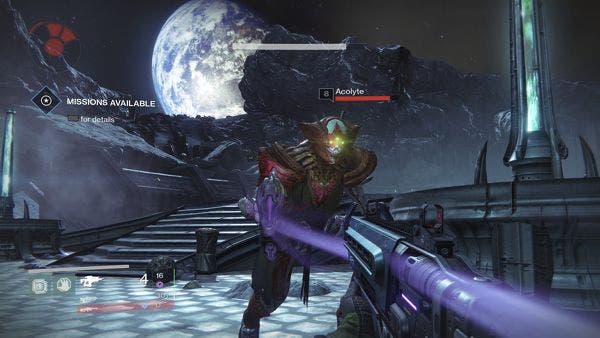
Can you remember your first article for Eurogamer?
Tom Bramwell: I can't remember. It was probably a review or a news story, though. When I started I joined John Bye, who was the launch editor, and my remit was to do console news and features, reviews, at quite a rate. It was quite a heavy workload.
How old were you then?
Tom Bramwell: 16. It's crazy.
Were you just happy to be writing about video games or was there already a master plan?
Tom Bramwell: I definitely didn't have a master plan when I was 16. I didn't enjoy school. I wasn't getting a lot out of it. I was really enjoying the relationships I was forming online, the writing I was doing about video games - I was working for GameSpy as a sort of freelancer, running some of their sites.
I just wanted to keep doing that for as long as possible. It had been my dream from when I was about 10 or 12 to be a games journalist. I grew up reading Super Play magazine, primarily, and later PC Gamer. I found the idea of being at the heart of the community that existed around games, which had a special nature to it, just irresistible. And I loved the written word. So I pursued those things avidly in my spare time as a teenager, and one thing led to another. And here I am, 15 years later.
When did you become editor of Eurogamer?
Tom Bramwell: That was January 2008. I remember I was playing some game that I'd reviewed a few months previously. We'd fallen out with the publisher about it.
Why?
Tom Bramwell: Because they didn't like the score. Here's an inside scoop for anyone who ever asks about publishers falling out with the media: it's because of the score. The only thing they ever care about is the score. The individual PRs will read your review and they are gamers, good people generally, and they will appreciate the depth and honesty of your work, but they work for people who regard you as a random number generator and ideally they want to hold a magnet next to your head to distort the output.
Anyway, I was playing through this game on the Xbox 360 to get the achievements. And I got a phone call either from Rupert or Kristan Reed, who was the editor at the time, saying, do you want to come and meet us? We're in a pub in central Brighton. So I came along and they said, Kristan's moving upstairs, do you want to be editor of Eurogamer? I said, yes please.
How did you feel?
Tom Bramwell: Intimidated but excited. Anyone who gets a job like that hopefully feels those sensations, because you want to drive to prove yourself - to yourself as well. I didn't necessarily believe I was the best person for something like this at the time.
No one can accuse you of not having put the time in beforehand. You had worked for the site for eight years at that point.
Tom Bramwell: Sure. But you wonder whether you've got the contacts you need or the instincts you need to actually run the thing. And initially it was quite a harsh education. I'd tried to do a bunch of different stuff and the stats plummeted. And then I realised what I was doing wrong and they went up again. And they've gone up ever since.
What were you doing wrong to make the stats plummet?
Tom Bramwell: My first instinct was, great, let's really focus on a few things other people aren't talking about. I wanted to do a load of stuff on games that were in the Independent Games Festival, which at the time was just coming up. So I commissioned all these pieces about the line-up of finalists for the IGF Grand Prize. And they all just bombed. No-one read them at all. And I was doing this at the expense of cookie-cutter reviews and other bits and pieces I should have been doing.
You realise you need balance. This was pretty much in the days before social media, so there was no such thing as virality as we know it now, and you couldn't rely on a snappy headline to carry your words far and wide no matter the subject. So that was an education. People were still approaching websites as readers a lot like they were approaching magazines, and only really clicking on the things that they were interested in already.
How did we live?
Tom Bramwell: It was okay. At the time, the way I saw it was, you were writing about the stuff you didn't necessarily care about as much, but which had a wide mainstream audience, to justify the time you would then spend on the things you were really passionate about.
These days, it's gone the opposite way. If you double down on your passions you'll find a lot of other people share those passions even if they seem quite esoteric on the surface of it, so writing about things that run deep is just as important as writing about anything else.
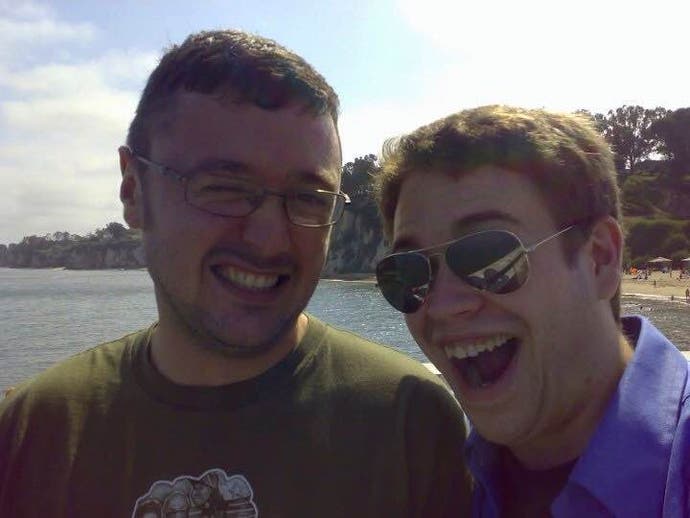
Like Destiny?
Tom Bramwell: This is a good example. But so is Hearthstone. So is World of Warcraft. Any game with a deep community. And actually, the more mainstream stuff, although it does okay, you're almost dragging yourself off to do that stuff. Although the truth is that if you have something unique and interesting to say, and the headline conveys that honestly and eye-catchingly, you can make just about anything work online now. People want to find quality writing about interesting subjects. The science is a lot simpler nowadays.
The impression I had of Eurogamer when I joined in 2010 was that it was very much the leading video game website in the UK. Eurogamer to me had an air of quality about it that others didn't. I know it's always been compared to certain magazines.
Tom Bramwell: People used to say we were Edge Lite, although nowadays I prefer to think of Edge as Eurogamer Lite. That's a joke, Tony! Don't send me another email. Actually you don't have my updated email address.
Jokes are fine.
Tom Bramwell: The last time I made some joke on Twitter about Edge I got an email from Tony Mott telling me off. It was a fair cop on that occasion.
So, before I joined, Eurogamer always felt to me like it had better quality journalism, better quality writing and smarter articles than its competitors. Was that an organic development? Or was that something you set out to create?
Tom Bramwell: I don't know it was deliberate. Thanks, by the way! It's flattering it even felt that way then. In the early days we just set out to do whatever felt most natural to us. Kristan had come in after John and had brought contacts that had allowed us to get much closer to mainstream big games, rather than scratching around for review code in the way we had been. That gave us a helpful identity where on the one hand we were seen as the upstart, because the big magazine publishers still referred to us as boys in their bedrooms and generally derided us at every turn. So we had this indie credibility.
But on the other hand, Kristan had come from trade magazine royalty and brought with him the contacts we needed to actually get the stuff and be treated... not equally - that took a very long time - but certainly in a similar way to the mags and more traditional publishers.
From that we were then able to just be incredibly honest, as much as possible, about what we saw. I'll be the first to admit we wrote some absolute rubbish over the years, myself included.
Like what?
Tom Bramwell: Well, the one everyone always talks about is E3 2005 - the one where they unveiled the 360 and the PS3. For some reason I had been chatting to Rob Fahey, who is my friend and colleague, and we'd decided that we should have more of a specific editorial line.
Sounds like collusion to me.
Tom Bramwell: Absolutely. We should just state our opinions more directly than we had been, in the same way newspapers did and the same way the red tops did. This led to the infamous - among Eurogamer readers anyway - headline I wrote after the PlayStation conference: "PlayStation 3 - the real next generation."
This was not a popular headline. This was not a popular feature. I had been pretty well taken in by what they had shown. It was a pretty impressive set of target renders. I, in my youth and excitement, largely believed it. I thought, wow, that's amazing. Obviously I didn't feel entirely vindicated when I finally saw MotorStorm.
So yeah, things like that. There was some rubbish along the way. But, generally speaking, we all just strove to be the anti-establishment publication. Honest and informed and detailed. Much later people started saying to us, well Eurogamer's great. It's the quality games website when there isn't a lot out there. There wasn't a huge amount out there. We seized on that. We were all obsessed with game reviews in particular. Criticism was the backbone of the site. So that's where the quality thing came from.
We've probably over the years started to really live up to that. I don't know if we necessarily did in the mid-2000s. Certainly not relative to now. But now you read some of the articles that people like Oli Welsh or Simon Parkin or Christian Donlan or yourself or whoever write and you just think, that's incredibly detailed, thought-provoking journalism and criticism. And that's definitely what I started to realise I wanted over my editorship, so it's nice it's there.
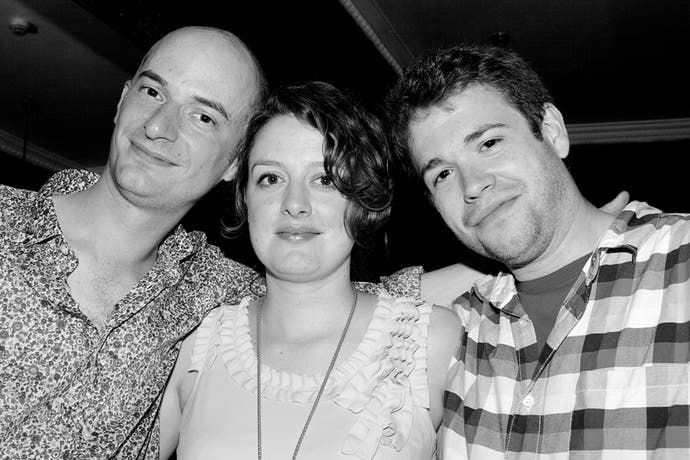
Are Eurogamer snobs?
Tom Bramwell: Oh absolutely. There's no doubt about it. But that's what comes with deep fandom, right, is this slightly snobbish air. You love something so much, you want the best from it and you want it to improve and push its own boundaries, so you are instinctively less accepting of things that are simply good or pander to mainstream tastes. But you need to keep it in balance. For example, yes, you want to put the way FIFA fetishises the commercialisation of football while failing to evolve into a wider context and condemn that to some degree, but you also need to acknowledge that you play it every day and have fun.
So personally I'm certainly a snob, but I try to puncture that bubble of snobbery as often as possible and take myself to task and say, no hey, that's really cool.
You also need to be careful not to let your snobbery give way to kneejerk cynicism. There was that thing last week, the German guy who built an Elite cockpit with his three screens. My first reaction to that was, lol nerd! Just for effect, really. The internet breeds cynicism in all of us these days, more than it ever used to. But the more you look at it the more you go, oh man, that guy's living the dream. That's so awesome. I'm incredibly jealous. So yeah. We're snobs, but we try to keep balance in our snobbery and avoid descending into being jaded - probably with mixed results, but we're only human.
Are we aloof?
Tom Bramwell: There's definitely aloofness in the way we work. That's a sense of distance between us and folks who comment on the site. Comments, as we all know, can be quite hostile. We haven't been as strong on moderation as some other sites have been. That's totally my fault. I wish I had been better at that. That is one of my regrets. I like a lot of our readers, who I know personally and speak to regularly, and I am grateful for the relationship I have with them, but I just don't enjoy comment threads.
Also, part of our editorial approach has always been to try to pull back and see the big picture and offer commentary that isn't distorted by the emotions that come with pressing your face up against the glass of a subject. And so, aloofness comes from those two things.
The implicit question there is, is it a good thing? I think it makes us distinctive. And I think it will probably continue, because it's Oli's natural instinct. We're unlikely to change dramatically, given the team here. You could do it differently and have a great site, but I think if you like Eurogamer in its current form then it's probably a good thing.
Were you ever offered money for a review score?
Tom Bramwell: No, never.
Have you ever heard of it ever happening?
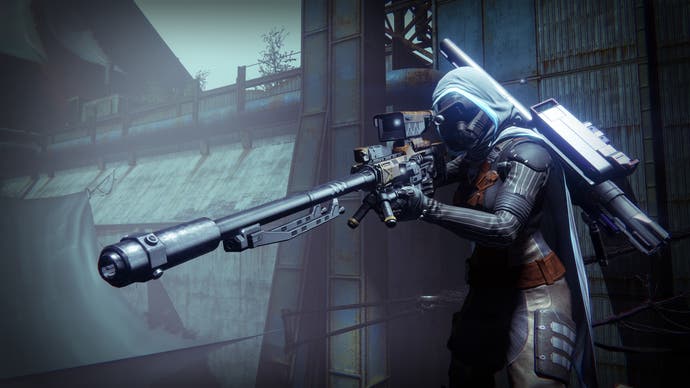
Tom Bramwell: There were rumours, probably 10, 12 years ago that it happened now and then. But I think they were myths even then, really. I think the truth about review scores people don't agree with, back then, tended to be the game was an exclusive review, and so the reviewer was playing it in total isolation and being encouraged to, by their editor as much as the publisher, to accept the things they were seeing that were broken would be fixed, and to write to that. Because that's how a lot of magazine publishing worked. You were working three or four months out from the thing happening.
These days it's just differences of opinion really. And we should embrace it rather than always turning it into a conspiracy or a fault. It's sad that when a new game comes out there's this amazing rush to try to anoint the one true score, the one definitive opinion about it. You know how it is. You and I play the same games. Even games we really love, we disagree about the details. And details matter hugely. In things like games, where there are so many facets to them, that's incredibly important.
Destiny has an appalling story - well it doesn't really have a story. And if you were to look at the many hours I've spent playing it and summarise based on what the majority of them were spent doing, you would say, actually, it's just a game about picking up weird looking flowers and bits of metal from around big maps. And you can certainly paint a picture of it that's negative based on those things if that's how they make you feel. And there's nothing wrong with that. But for me personally, it's wonderful. I enjoy the universe, the mood of it, the repetitive mechanical cycles that enable you to upgrade things that then make you more potent in the things you do with your friends. The sense of community and camaraderie, the richness of the core gameplay loop and its infinite variation. Those things are valuable as well. So that's a game that can divide opinion quite easily. Two critics can disagree about it perfectly honestly. That's how criticism is supposed to work.
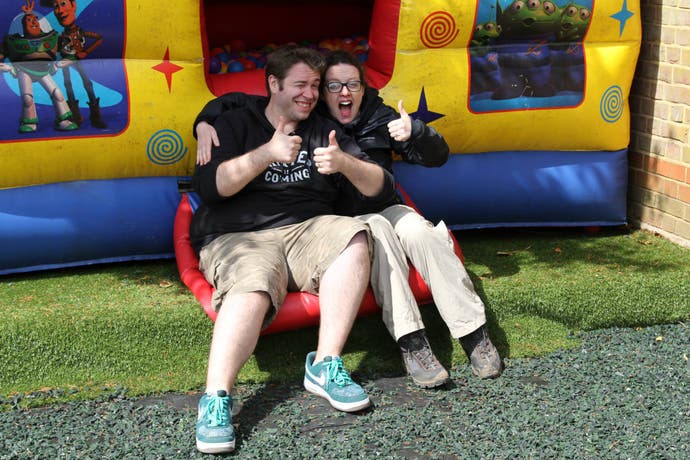
Do you have any highlights from your time at Eurogamer?
Tom Bramwell: Well I've got these grey hairs, if that's what you mean.
Something that might have happened at an event?
Tom Bramwell: You mean juicy anecdotes? Is that what you're after?
Always.
Tom Bramwell: Well, I always talk about the Don Mattrick interview and the Phil Harrison one at the Xbox One launch.
Let's start with Don Mattress.
Tom Bramwell: Don Mattress... I've interviewed a lot of famous people and executives. He was slightly weird. You could tell he was the boss of a company and knew it, or at least the boss of a division. It was one of those executive interviews where the other person doesn't really do a lot to try and make you feel that welcome. They're quite happy that it's obvious that you're a guy probably in a free T-shirt sitting in front of him with a dictaphone asking questions, while he sits there in a suit and deflects them.
It was just a weird interview. For one thing, he gave an answer to a question I asked about Bungie, which Bungie then put out a statement refuting, which was a very strange thing to experience. But also at the end of it, I was wrapping up and I was asking a question about - I forget what it was - it was something about where Xbox would be in a year's time or something. Let's imagine it was a better question. I began by saying, so, we'll be sitting here again in a year's time. And as the words left my mouth he lurched forward and went, yeah! Wooo! Yeah! It's in the transcript. It's weird. I can never erase the image of mad, whooping Don Mattrick from my memory.
And the other one - I almost don't want to mention it, because I feel bad for Phil Harrison, because he had a bad time at the Xbox One unveiling. But that was a bit of a car crash when he did interviews with me and Stephen Totilo at Kotaku, and he started trying to explain how the pre-owned digital ownership discs thing worked. He seemed to make a hash of it. So much so that after the interview they asked me to come back an hour later to try to clarify his comments. It was bizarre. But I almost don't really want to mention it because it's water under the bridge now and the guy just had a bad day. He has a lot of good days and doesn't deserve to be tagged with that crap forever.
But I mostly have second-hand anecdotes. I'm a very boring person and don't go out.
What has been your happiest moment at Eurogamer?
Tom Bramwell: You have flashes of excitement when you break a big story, when you publish a huge review, when you nail a deadline. But ultimately it's a long tapestry of mini successes, rather than you've saved the world one day.
My most positive memory of Eurogamer is the whole experience of working here, of making lifelong friendships with people. Tom Phillips, for example, I hired him just after I hired you in 2010. He was this Nintendo fan from Norfolk, basically, who applied for a job. And he came down to the office, I interviewed him and he was a really nice guy, really into his games, wrote pretty well, had a lot of potential. And I look four years later, and he's deputy news editor. He was a guy I hired essentially to put up screenshots and trailers so the rest of us could crack on. He was an admin guy. But he was so good and so dedicated and clearly capable that he just rose and rose and rose. And he's a really accomplished journalist now. I don't think he would live in this part of the world or have half of the friendships he has if it wasn't for the fact that I hired him. And that makes me feel really good. This really nice person, this friend that I have, he probably wouldn't be in my life if it wasn't for that. And that matters to me far more than the time I gave game X review score Y.

Can you to this day eat a bag of Doritos?
Tom Bramwell: I actually quite like the taste of Doritos.
What about Mountain Dew?
Tom Bramwell: I also like Mountain Dew. This was one of the tragedies of that episode. A favoured snack and beverage were sullied forever. Although they seem to be doing all right.
Any regrets over all of that?
Tom Bramwell: Oh yeah, definitely.
Like what?
Tom Bramwell: I just think it was a really regrettable episode, like the way people got hurt and it didn't have to be. I take responsibility for that. I learned a lot. We did make some improvements to the way we work afterwards, but I would have done several things differently. But I don't really want to drag it all up again so I'm not going to.
Are you sexist?
Tom Bramwell: I think I'm inherently sexist, as I think probably all men are, because of the way we're conditioned by society to regard women as objects rather than people. I see this all the time. But it isn't something I was particularly conscious of in myself, or worried about in any way, until relatively recently. We're probably all inherently a bit sexist, but it's something we fight against in ourselves, right? Otherwise it doesn't stand any chance of stopping. And dismissing it as 'you're just getting older' when you want to say something about it, as though it doesn't need to be said, to me that feels negligent and complicit in its perpetuation, so I said something.
I think it's darkly hilarious, working in a company that has been unwittingly assembled almost exclusively of men, in an industry with a terrible gender imbalance in its make-up and output and a wage gap you could drive a bus through, that it's even considered a debate now rather than just a blindingly obvious truth hiding in plain sight, but I've certainly learned that a lot of men are violently opposed to discussing the idea that women get a bad deal or that there's inherent sexism and even misogyny in gaming communities. My only regret is that it took me so long to pay attention and try to do something useful about it, and that I could do so little.
You started in 2000, or the PS2 era. Since then, what has been your favourite video game console?
Tom Bramwell: Can I name two?
No. You can name a second place.
Tom Bramwell: Because I don't care for the framework of your question, it's a tie between, for very personal reasons, the GameCube and the Xbox 360.
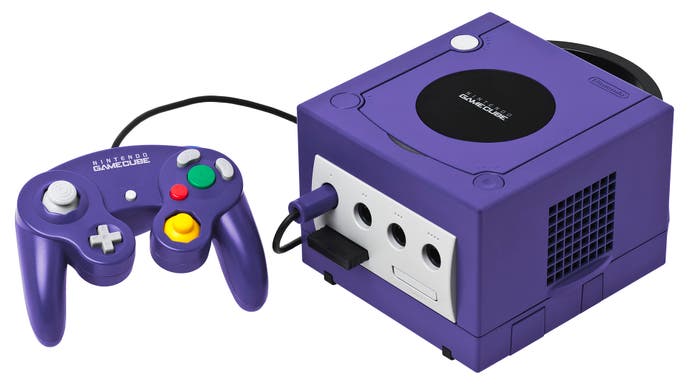
The GameCube, I used to call it the little purple joy box.
Don't Google that.
Tom Bramwell: It is Nintendo's love of toys and love of the concept of play perfectly encapsulated in a beautiful little object. I still have two of them at home. I have one that's actually plugged in. It's the only retro console I have plugged in.
A reader, very kindly, when I asked on Twitter if anyone knew where I could get one, sent me his component cable, because they were so expensive and rare, so I could play progressive-scan American and Japanese GameCube games on my TV. I have a Japanese one with a Japanese/US switch on the back.
The system software is beautiful. The industrial design of the unit, I know it's not to everyone's taste, but I think it's a gorgeous object. It had the first proper wireless controller, the WaveBird, which I still have and it still works. The discs were beautiful. The packaging... I wish the Japanese game packaging had been universal because it's just so tactile and clever and memorable. That's the thing that really sticks with me. PlayStations, as much as I like PlayStation, they're kind of disposable. They were appliances, essentially. The Nintendo GameCube, as with many Nintendo consoles, was built to last and to be a point of lasting sentimental value and affection. And it certainly is.
And plus, the software lineup. You go back and you can say, yeah, Nintendo kind of got trounced in that generation. They didn't really - they did by PlayStation 2 - but they were pretty even with the Xbox. But there were so many great games on the GameCube. So many original games as well. Luigi's Mansion. PN03. Metroid Prime. Wind Waker. Pikmin. Viewtiful Joe. Killer 7. Rogue Leader was great. Metal Gear Solid: The Twin Snakes, the original retro remake.
Resident Evil.
Tom Bramwell: Resident Evil remake, yeah. Resident Evil 4 as well, is a fair shout for best game ever on a lot of people's lists.
So why Xbox 360?
Tom Bramwell: For many similar reasons, really. It has a lot of those characteristics as well. The original design and the slim design are both really nice, probably more of their time than most things, but just really nice objects. The controller, the Xbox 360 controller is the game controller the world uses, essentially. Even today, if you go to a lot of events it's the one that's plugged in to PCs. It is the universal remote control for games.
The system software! Admittedly the comparison with Xbox One really flatters it in hindsight. But if you load up your Xbox 360 today, it's a real pleasure to do so from start to stop. Even though they redesigned it a bunch of times, what they ended up with, panels - it's all a bit silly - but it has a real character to it. There's a soft edge-ness to it. There's a particular lighting. The avatars. We joked about them at the time that it was just copying the Miis. But it's an enduring look. And it gave the console a friendly face. It's one of the best things Rare has done since being acquired by Microsoft, actually.
And then the software lineup. There are some genuine classic games that were only on Xbox 360. Gears of War gets nowhere near as much credit as it should as just a sensational video game. I still can't believe no-one's copied Active Reload, which is one of the best ideas in a shooter.
I feel like they can't because it would be so obvious.
Tom Bramwell: Well they copied everything else in Gears of War. And they really did. That is in with a decent shout of one of the best console exclusives ever. It had Halo 3. What a game. Halo 3 was almost - and I'm not as much of a Halo fan as you - but it felt to me like the culmination of what they'd been trying to do up to that point.
It was the complete package.
The Xbox 360 also had Xbox Live Arcade, which brought with it some tremendous indie games. It's the place I played Braid. It's the place I played Spelunky. Geometry Wars. For all of Microsoft's flaws as a company - I think it's pretty obvious I think they have some - Xbox 360 was a fantastic moment in their history, and something that will endure, probably more than the Xbox One, in people's memories.
Those two, they felt like consoles that were the complete package.
Okay, we'll call it a tie then. What is your favourite game?
Tom Bramwell: Right now it's Destiny.
Of your time at Eurogamer.
Tom Bramwell: It's hard to say because your affection shifts so much, particularly if like me - and I think you are like me in this - you get really obsessed with one or two games at a time.
There are some games that have been incredibly special for me in the period I've worked at Eurogamer. One of them is definitely Ico. I remember when Ico first pitched up - I think I just went and bought it at my local video shop and wrote a review of it. It wasn't like anything I'd played before. It had a unique atmosphere. It had particular lighting. It had music and ideas and a poetic, thoughtful quietness to it that was absent from the majority of things people were making - although actually probably less so than nowadays. That was a very special game for me.
Probably, if I had to just pin to one, I would say Ico. But there have been tons and tons and tons. It would be silly not to mention GTA, which as a series is probably the one I've spent more time playing than almost anything else, over the very long term. The original Grand Theft Auto - the top down one - was the first game I ever made a website about. It was what started me on the path that eventually led me here. Making GTA fan sites.
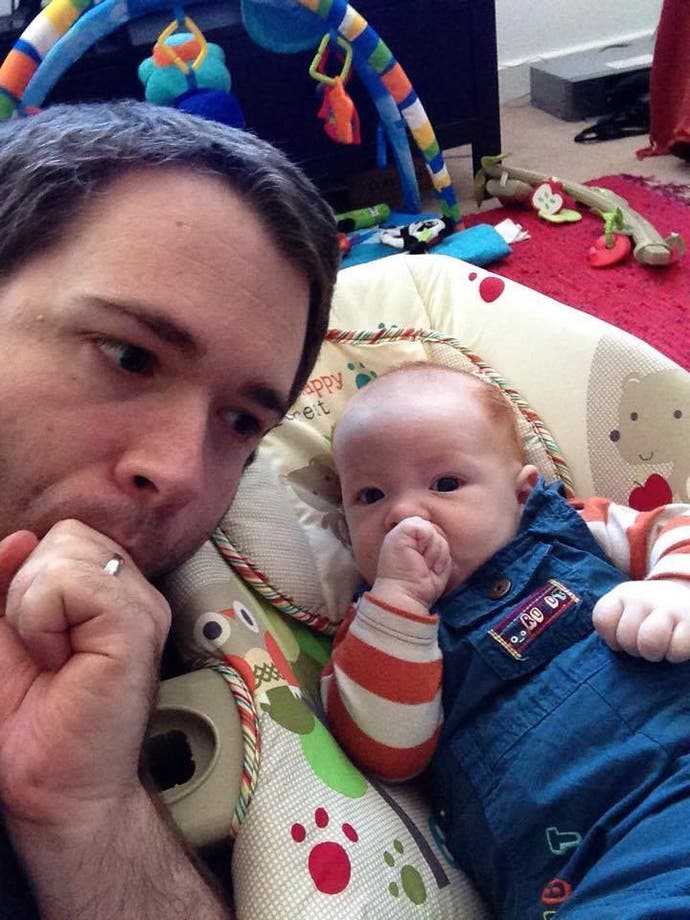
You've played an incredibly important role in UK games journalism over the last decade, steering Eurogamer towards being what many people consider to be the best UK games website, and certainly one of the largest. What will be the landscape in 10 years' time?
Tom Bramwell: First of all, thank you, that's an incredible thing to say and while I will take it, I think I have been very fortunate to work with some wonderful people as well, and I also feel as though the quality of games journalism has just gone up and up and up in this period. It's very flattering to be described that way considering the quality of my contemporaries.
To your question, it's really hard to say. If you asked me this 10 years ago, I don't think I would have been able to predict things like Twitter, like the rise of YouTubers, or the way virality works. I don't think it would have been something I would have been able to foresee.
Do you think people will still read articles about video games?
Tom Bramwell: I'm certainly not going to say the written word is going to die out in the next 10 years. I think people will still read about video games, sure. The way things are done will have changed again. Of course it must. We know for a fact that as a profession overall, not just games - in fact, specialist games journalism is slightly insulated against this because of its specialism - but as a profession, web journalism is not making as much money as it costs because of the way advertising works. And so there will be some sort of change in the way those relationships work between readers and the press.
You'll continue to see more and more of what the publishers call brand journalism, which is people who work for companies, writing the kinds of stories we write but writing them within those companies and publishing them on their own portals. So things will look similar but different. And it may seem, looking back, like these were the halcyon days of yore.
One thing I would really like to see - and this is because I'm a nostalgic old man these days - is a revival of sorts for magazines. The reason I got into games journalism - I know Oli in his very lovely thing he wrote on my last blog about leaving said I was a dyed in the wool online journalist - but I got into it because I love game magazines. And one regret is I've never worked on one.
Maybe you should start one.
Tom Bramwell: The point is, there was a special feeling that came with being a fan of a games magazine. You bought it, you absorbed all of the different things of it, you got to know the characters who wrote the mag much more than you do the individual authors necessarily online.
In those days, if you were into something, you had to go out and find a community, and you did that by hitching yourself to a particular games magazine. It was like a tribe. I was a Super Play guy. There were Mean Machines guys. And that relationship with the magazine survived differences of opinion - I didn't entirely agree with their Chrono Trigger review, for example, but so what? They were my people. I still remember specific in-jokes and instalments of the Final Fantasy Forum column.
That dynamic did exist for a while with websites in the days before social media - people would come to Eurogamer and get to know the writers and the community and become part of it. But it doesn't happen as much any more because communication and discovery are so much easier and anyone can publish their opinion online, so that close relationship between people and individual publications is less integral to fandom. There's this divide now between professional writers and the audience.
But that close relationship can still exist with magazines, if done right. I think PC Gamer still has it, actually. So I'd like to see the unique qualities that attracted me to games journalism in the first place, which were all bundled up in magazines, come back around. Hopefully some upheaval in publishing will help that to happen. But I probably don't know what I'm talking about.
That seems like an appropriate place to finish.
